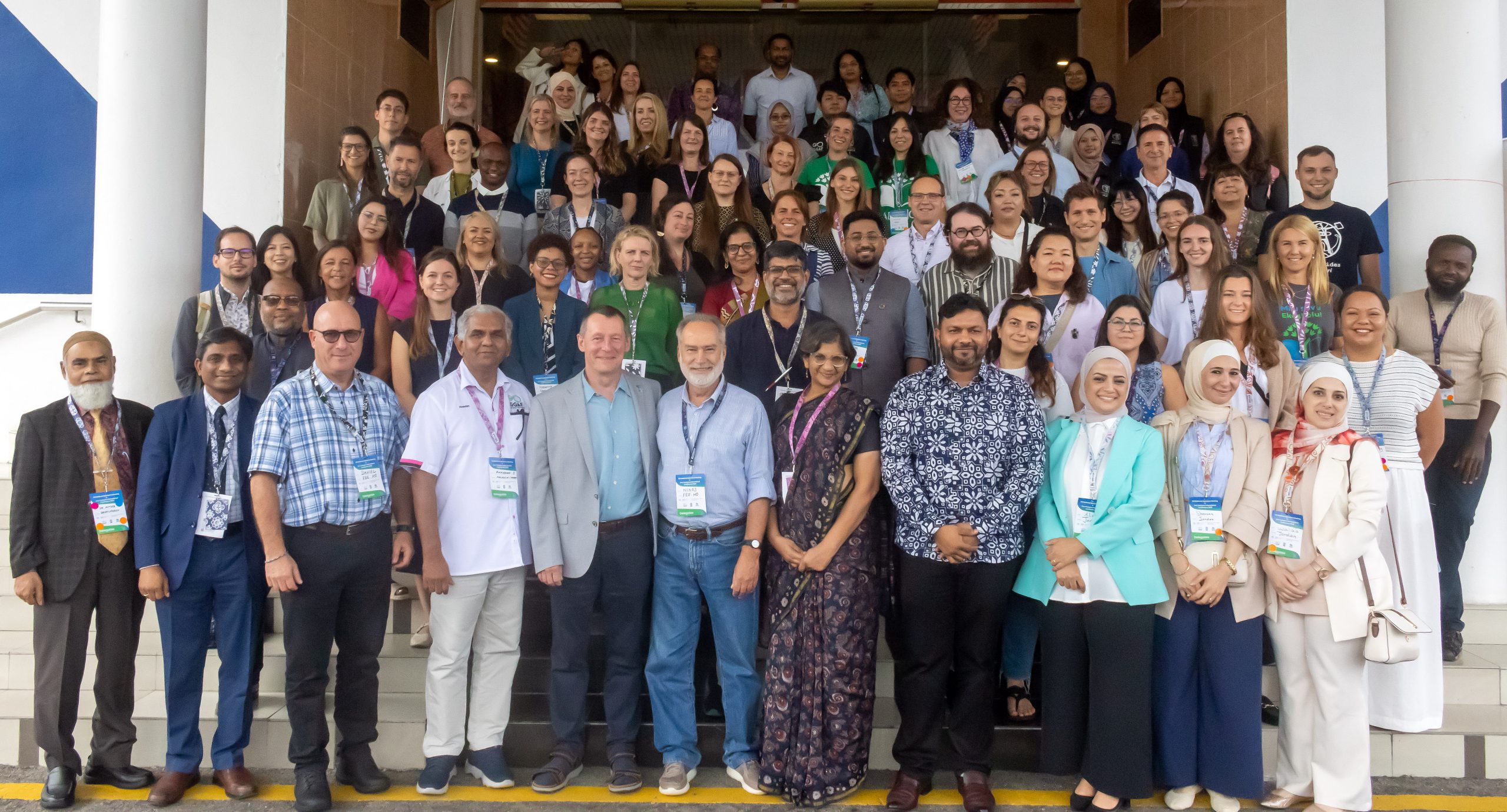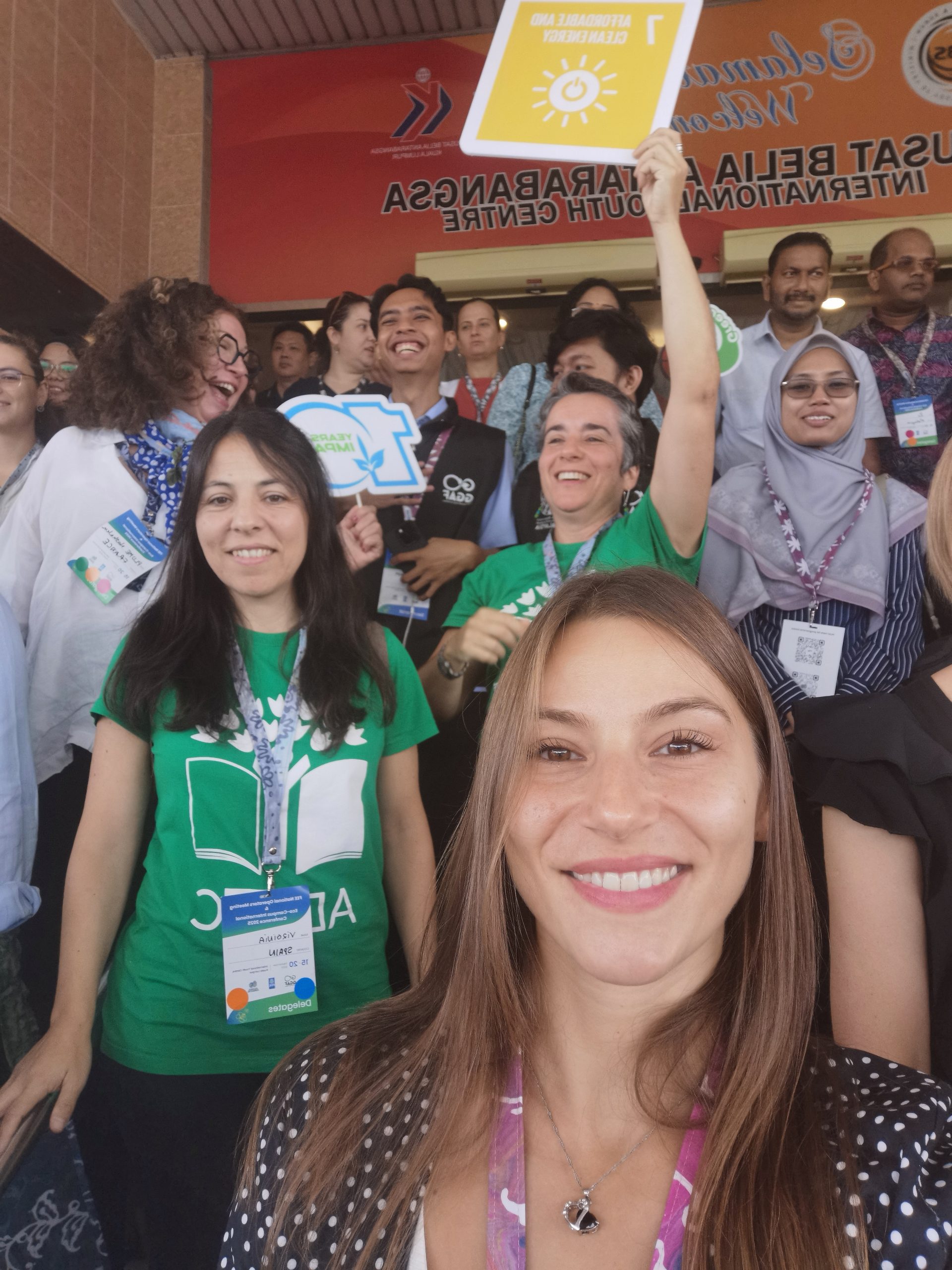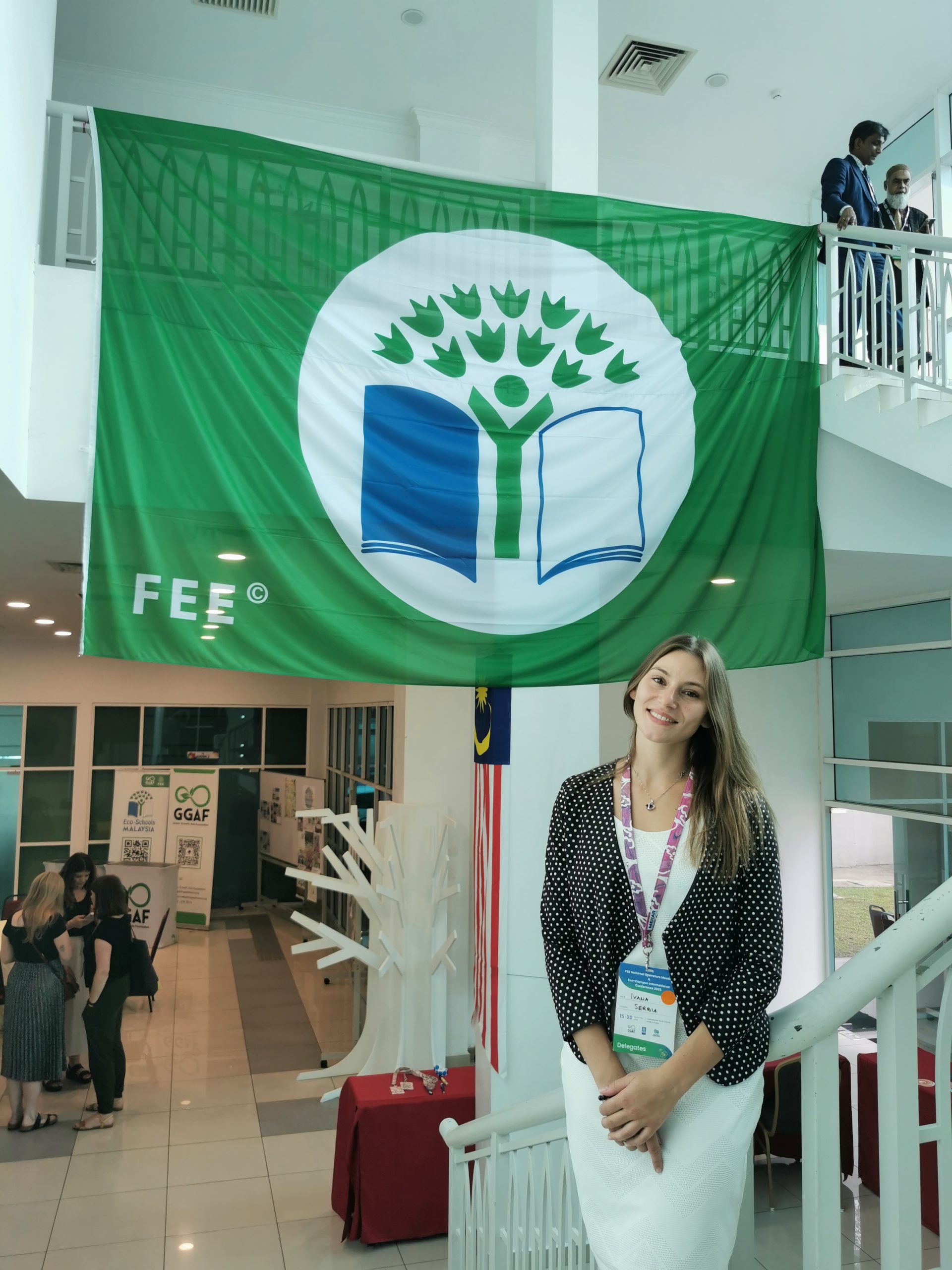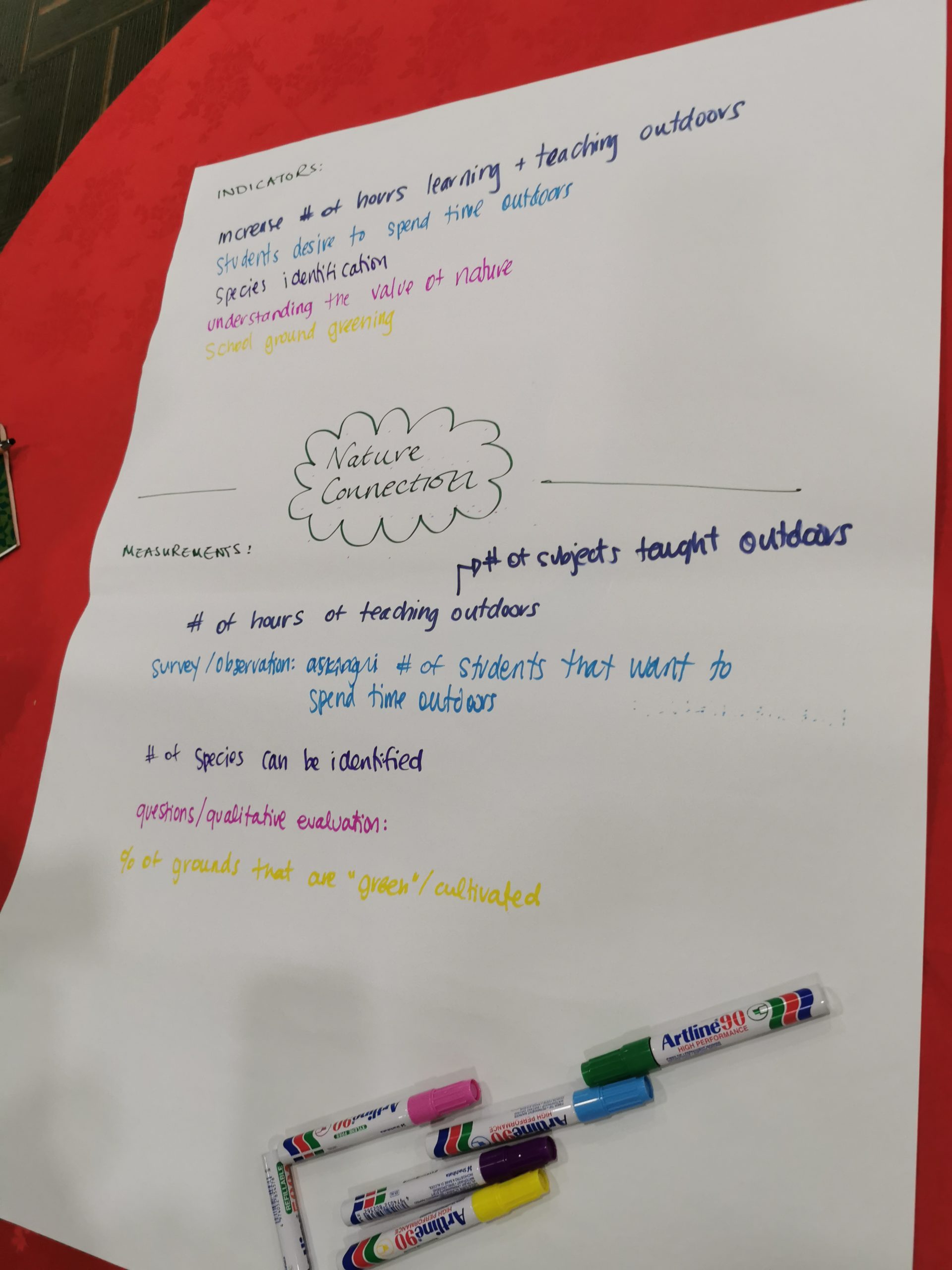The National Operators Meeting (#NOM2025) for the Eco-Schools, LEAF (Learning about Ecosystems and Forests), and Young Reporters for the Environment (YRE) programmes was held in Kuala Lumpur, Malaysia, from 15–18 September 2025. The event was organized with the support of the Green Growth Asia Foundation (GGAF) and the Foundation for Environmental Education (FEE). Hosted at the International Youth Center, the meeting brought together nearly 88 delegates from 48 countries. Serbia was represented by Ivana Zarić Munitlak, associate of the Environmental Ambassadors for Sustainable Development, National Operator implementing the Eco-Schools programme in Serbia since 2012. Currently, more than 150 educational institutions across Serbia are engaged in the programme.
Among the highlights of the meeting were the launch of new Eco-Schools handbooks developed through the partnership between FEE and company PPG, presentations from FEE Board members, teacher capacity-building workshops, and inspiring stories shared from across the network.
Day 1 emphasized key themes:
🔹Children’s knowledge and life skills as the foundation of all learning
🔹Equality, inclusion, and cultural adaptability
🔹Teacher capacity building
🔹Recognition, validation, and quality assurance
🔹Active citizenship, participation, and advocacy for emerging issues
High-quality education goes beyond classrooms—it means empowering students, involving all stakeholders, and shaping citizens ready for the future.
“FEE bridges the gap between high-level climate commitments and grassroots capacity, empowering educators, students, and communities through EcoCampus and EcoSchools to deliver measurable, quality-assured sustainability outcomes,” said Dr. Nikos Petrou, President of FEE.
Day 2 included a refreshing nature walk in nearby Permaisuri Park, guided by WWF-Malaysia volunteers, followed by a full day of interactive sessions:
🌿Connecting Learners with Nature: National Operators from Greece, Ireland, Belgium, and Wales shared innovative approaches to inspire stronger connections with the natural world.
🤝Find Your Twin: an engaging exercise that brought National Operators together to brainstorm, collaborate, and spark new partnerships.
🌐Building Community Engagement & Climate Resilience: practical strategies were shared by National Operators from Mexico and France, offering concrete approaches to empower communities.
📚Strengthening Informal Education: featuring a special presentation by João Armando Gonçalves, Chief Education & Development Officer of World Organization of the Scout Movement (WOSM), on how informal education and the Scouts’ experience can amplify outdoor learning.
The day was all about sharing stories, exchanging ideas, and building connections across our global network, showing once again the strength of collaboration in driving environmental education forward.
Day 3 featured a panel “Inspiring Stories from Malaysia” led by Dr. Balamurugan Ratha Krishnan (GGAF), with contributions from Mr. Risharry Bin Mohd Ramli (Ministry of Education Malaysia), WWF-Malaysia, the International Youth Center, BOH Plantations, and Yayasan PETRONAS.
Highlighting Malaysia’s leadership, GGAF CEO Datuk Dr. Mahadi Mohamad stated:
“Malaysia’s leadership in environmental education must be built on practical delivery. GGAF focuses on student leadership and measurable indicators for energy, waste, water and biodiversity to ensure progress is visible and verifiable. Hosting NOM in Kuala Lumpur lets the world see quality at work and at scale.”
GGAF chief executive Dr Balamurugan Ratha Krishnan added, “This is where education meets the green economy. Malaysia is showing how to turn lessons into jobs, data into ESG credibility, and campus projects into city solutions. For companies building talent pipelines and stronger disclosures, these programmes are ready to plug in and scale.”
The Youth Expo was the highlight of the day, where Malaysian Eco-Schools students showcased inspiring leadership and entrepreneurship projects—from musical instruments made of waste and eco-bricks made of plastic to candles produced from used cooking oil. Their creativity reflects the future of sustainability in Malaysia and beyond.
In the afternoon, we welcomed our international and academic guests:
👤Charles Hopkins, UNESCO Chair in Reorienting Education towards Sustainability (York University)
👤Katerina Ananiadou, Programme Specialist & Coordinator of the Greening Education Partnership (UNESCO)
👤Paul Pace, Professor at the University of Malta
Their contributions enriched the discussions with global perspectives and insights on transforming education for sustainability.
Aligned with UNESCO’s program Education for Sustainable Development – ESD for 2030 and the Greening Education Partnership, the new masterplan was adopted at the NOM and aims to:
• Strengthen teacher training.
• Link learning directly to green jobs.
• Expand hands-on sustainability projects across schools and campuses.
Delegates at NOM exchanged proven solutions that could be adapted quickly to local needs. This ensured faster scaling of climate action across education, industry, and cities. The momentum continued at the ECIC, where universities presented living lab projects, highlighted how green skills drove employability and shared best practices with international partners.




